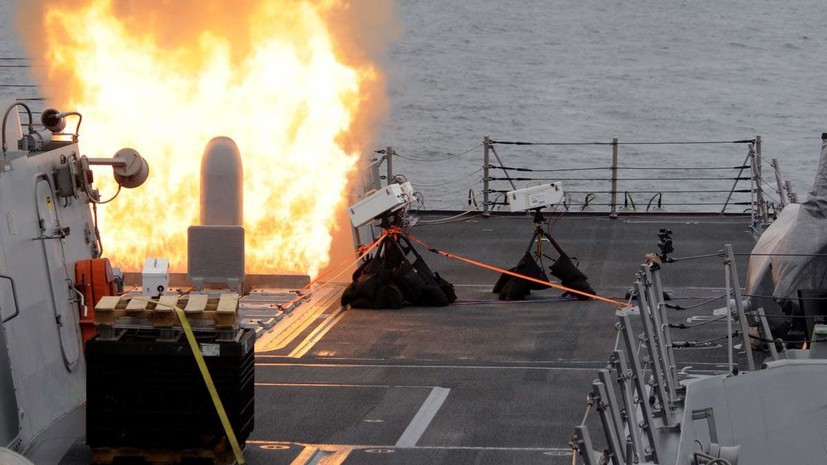The Russian military department commented on the statement by NATO Secretary General Jens Stoltenberg that Russia, under the conditions of the termination of the INF Treaty, supposedly "places missiles capable of carrying a nuclear charge in Europe." Representatives of the Ministry of Defense emphasized that the violation of the agreements should not be blamed on Russia, but on the United States.
“It should be noted that the responsibility for the“ collapse ”of the INF Treaty lies with the leader of the alliance - the United States. The withdrawal of the American side from the Treaty created additional serious risks for international security, ”the report said.
The Russian military department reminded that on August 18, the Pentagon tested the missile with the help of the Mk-41 universal launcher, which is used in the US missile defense system in Romania and Poland. This confirmed the validity of Moscow’s claims against Washington that the installations can be used to launch medium- and shorter-range ground-based missiles, the Ministry of Defense emphasized.
"Unproven allegations against Russia about non-compliance with the INF Treaty were used solely as an excuse for the US to withdraw from the agreement," the Defense Ministry said.
The military also indicated that Washington was already preparing to test a forbidden range missile before withdrawing from the INF Treaty on August 2, 2019. This is confirmed by the fact that the tests took place only 16 days later.
Russian response
Contrary to Stoltenberg’s statements, Moscow does not intend to deploy short- and medium-range missiles in Europe, the Ministry of Defense explained.
“Russia has not tested and is not armed, unlike the United States, with medium- and shorter-range missiles. In addition, Russia does not plan to deploy such missiles either in Europe or in other regions of the world until such American-made weapons appear there, ”the Russian military said.
The Ministry of Defense expressed the hope to hear from Western partners "assurances about the unacceptability of deploying American medium-range and shorter-range ground-based missiles on their territory, which the US side has already begun to develop."
In August 2019, Russian President Vladimir Putin instructed the Ministry of Defense and the Ministry of Foreign Affairs to analyze the level of threat and take symmetrical measures in response to the US tests of a cruise missile, which was previously prohibited under the INF Treaty.
In addition, he emphasized that Moscow does not intend to enter the arms race “costly and destructive for the economy” of the country and is ready to negotiate on this topic.
During the WEF session in September, the head of the Russian state announced that the Russian Federation would produce medium- and shorter-range missiles, but would not deploy them until the United States took appropriate action.
“We have already publicly said that we will not deploy, after the Americans tested such a missile, we will not deploy it - and we will produce the same missiles, of course - in those regions where American-made missiles of this class will not appear ground based, ”he said.
Ryan McCarthy, Acting Secretary of the Army (US Army), for his part, said that hypersonic, as well as high-precision missiles banned by the INF Treaty, could be deployed in the early 2020s.
Recall, the formal pretext for the United States to withdraw from the INF Treaty was the development by the Russian military of the 9M729 missile, which allegedly violated the agreement. However, the Russian Ministry of Defense showed the same cruise missile to foreign military and journalists at a special briefing.
The new development is a modernized version of the 9M728 missile, which is part of the Iskander-M complex. The maximum range of a rocket is 480 km. This is 10 km less than the 9M728. Moreover, the INF Treaty contained a ban on the production of missiles with a range of 500-1000 km and 1000-555 km.
To gallery page
However, representatives of the United States ignored the event.
“The military attachés of the USA, Great Britain, France and Germany, as well as representatives of NATO and the European Union to whom the invitation was sent, refrained from attending the briefing,” the Ministry of Defense explained.

